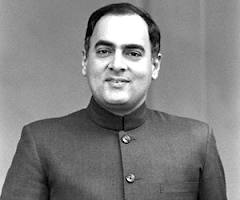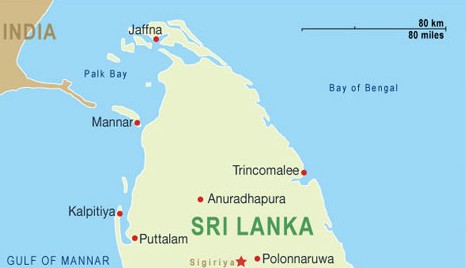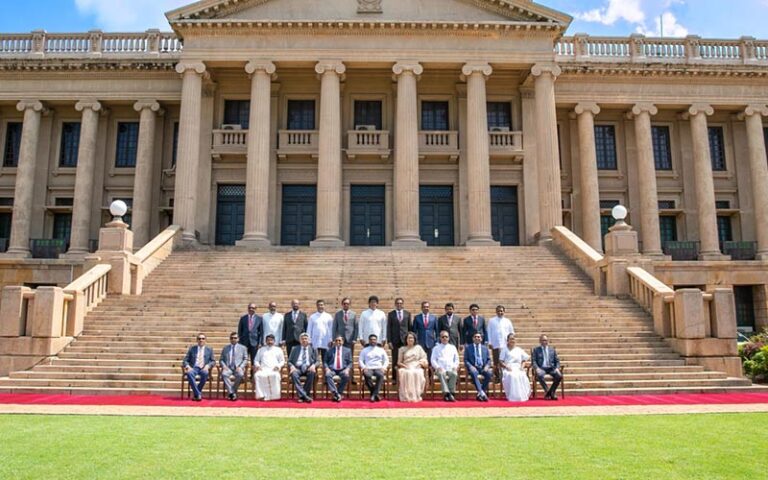 NEW DELHI, February 19: Twenty-three years after they were jailed, the Tamil Nadu Government headed by Chief Minister Jayaram Jayalalitha today decided to set free within three days all the seven convicts in the Rajiv Gandhi assassination case after the Indian Supreme Court commuted the death penalty of three of them to life sentence.
NEW DELHI, February 19: Twenty-three years after they were jailed, the Tamil Nadu Government headed by Chief Minister Jayaram Jayalalitha today decided to set free within three days all the seven convicts in the Rajiv Gandhi assassination case after the Indian Supreme Court commuted the death penalty of three of them to life sentence.
Besides Santhan, Mur-ugan, the husband of Nalini, Perarivalan, who earned a major reprieve from the Supreme Court yesterday which spared them from gallows, Nalini, Robert Pious, Jayakumar and Ravichan-dran will walk out from prison.
Four of the men who will be set free are Sri Lankan Tamils. They are: Murugan, Santhan, Robert Payas and V Jayakumar.
Jayalalithaa convened an emergency Cabinet meeting in Chennai this morning over the issue, and took the decision for the early release of the convicts sentenced for their roles in the sensational killing of Rajiv Gandhi.
She made a suo motu announcement in the state assembly.
The announcement, which brought cheers on the faces of convicts, their families, was hailed by opposition parties, barring the Congress Party.
Jayalalitha said that, in compliance with the Sec 435 of Criminal Procedure Code, the state will send the cabinet decision to the Centre seeking its nod for the release as the Central Bureau of Investigation (CBI) filed the case against the convicts.
“If there is no reply within three days from the Centre, the state government will release all the seven under CrPc section 432 in accordance with the powers vested with it”, she declared.
While members from the opposition parties thanked the Chief Minister for her gesture in deciding to release all the convicts, Congress Party’s JD Prince stood up and made certain remarks, which the Speaker V Dhanpal expunged.
John Jacob and NR Rangarajan (both Cong) were heard saying something, but the Chair refused permission stating that any statement made under Rule 110 of the House did not entail members to seek clarifications.
The three Congress members later trooped out of the House. Majority of political parties in the state had demanded immediate release of convicts in the backdrop of Supreme Court observation that the state can consider their release.
Perarivalan’s mother Arputhammal, who had relentlessly campaigned for about 23 years seeking her son’s release, had exuded confidence that the state will free her son from the prison.
Jayalalitha told the Assembly that soon after the Supreme Court judgement, she held a discussion with legal experts on the issue Tuesday.
She said she summoned the Cabinet meeting today at which the decision to release all the seven were taken.
“Considering that they have spent over 23 years in prison, the Cabinet decided to immediately release Santhan, Murugan and Perarivalan under the powers vested with the state government under Section 432 of CrPC. Likewise, it was also decided to release life convicts Nalini, Robert Pious, Jayakumar and Ravichandran, who too have spent 23 years in prison,” Jayalalitha said.
However, since the case was filed by the CBI before the TADA court, the Tamil Nadu Cabinet’s decision has to be referred to the Central government under Section 435 of CrPC.
“Hence, the Cabinet’s decision to release Santhan, Murugan, Perarivalan, Nalini, Robert Pious, Jayakumar and Ravichandran will be sent to the Central government immediately,” the Chief Minister said.
“If the Central government did not respond to the Cabinet reference within three days, then the state government invoking powers vested with it under Section 432 of CrPC, will release Santhan, Murugan, Perarivalan, Nalini, Robert Pious, Jayakumar and Ravichandran,” Jayalalithaa said.
Ridiculing the DMK’s demand to the state government to release the Rajiv killers, Jayalalitha blamed the previous Karunanidhi regime in 2000 for rejection of mercy petitions of convicts by the Governor and also by the President.
“Had the then government considered the plea of the convicts for clemency and recommended it to the Governor, it could have taken a Cabinet decision on it. But, such a thing did not happen.”
Jayalalitha also recalled the state Assembly resolution in 2011 seeking the President to commute the death penalty awarded to Rajiv assassins to life sentence.
“Though the DMK was part of the UPA alliance for one and a half years after the resolution was passed, Karunanidhi did not pursue the issue with the Centre,” she charged.
The Designated Court had in January 1998 sentenced all 26 available accused to death, but on appeal, the Supreme Court confirmed the conviction of only seven and acquitted 19 persons for being part of the conspiracy to assassinate Rajiv Gandhi. Of these, four were sentenced to death and three to life terms. In April 2000, the State Cabinet granted a reprieve to Nalini alone, and her sentence was reduced to life.
The other three serving life terms are Ravichandran, a youth from Tamil Nadu who formed a separatist group loyal to the Liberation Tigers of Tamil Eelam (LTTE), Robert Payas and V Jayakumar.
Source: The Island (Sri Lanka)




